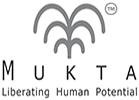Learning Continuously
Driven by disruptive changes and technological growth, rapid advances in the fields of artificial intelligence and increased automation is creating a massive shift in terms of proficiencies expected in employees.
How much of what you know and apply today in your career comes from what you learnt in your school or college? Not much, I suppose. Studies suggest that our brain is designed to forget half the things it gathered within an hour. Our minds can recall only about 30% of overall learning at any given point. That means we lose out on approximately 70% of things we have learned within days of learning it!
There is a reason for our poor memory. The brain by itself cannot decide what skills or learning will still be useful in the next 6 days or 6 weeks or 6 months. Programmed to retain only recently used data, our brain tends to forget the skills or knowledge it doesn’t use frequently.
The age of ‘knowledge overload’ with its constant flux of new and updated information results in further loss of lesser applied skills. Think about it, how many of us remember the skills picked up in our professional courses or even a learning programme our organisation made us attend 3 years ago?
You will be surprised to know that the shelf-life of skills is anywhere between 18 months to 2 years.
Driven by disruptive changes and technological growth, rapid advances in the fields of artificial intelligence and increased automation is creating a massive shift in terms of proficiencies expected in employees. This means that your current skills are likely to become irrelevant in the next two years. Staying in the ‘learning mode’ beyond your graduation and training programs offered by your company is going to be crucial to your career growth.
The best way to make most of these exciting times is to follow a two-pronged approach:
- Continuous Learning
- Retention and Recall
Continuous Learning
Continuous learning is necessary to build new skills to grow one’s career path and that’s a given. However, retention is not guaranteed just because you learned something once. Continuous learning works only if you are revising what you learnt. So revision is one way of recall. But it will still follow its own path of loss.
Also, you can’t keep learning the same thing every few days. You also have to upgrade yourself with new skills from time-to-time. So, continuous learning should be to build new skills and not to revise old learning.
The good news is that while knowledge is expanding exponentially, so is the availability of high-quality learning resources. The digital revolution has made the availability of relevant content at low costs a reality. The learning could include new developments in your field or building of cross-functional competencies. For eg: If you’re already a rockstar sales person, you could join the marketing team to leverage your current expertise and learn new skills.
However, as we may have experienced, we can soon forget what we learn.
Retention and Recall
Retention of any new learning comes only through recall and application. So, if you want to remember what you picked up at a recent learning and development program, you would have to find ways to bring it to your present memory. And still, you may not recall it unless you test it, which is what academic institutions and well-crafted training courses do through simulations.
While testing is at times not feasible for skills learnt later in your career, you have to find ways to use or apply your knowledge. For example, you may have attended a course or read a great book on strategy. While your boss may not have told you to develop or comment on the strategy of the company you work in; are you thinking about the strategy of the organization? Can you make a small note about how the strategy of the company could be changed? And then propose it to your boss?
You may fear that you may be laughed at if you do such a thing. Most people have this fear, but in my experience, leaders do not laugh when employees come up with ideas.
And even if your company hasn’t accepted your idea, it doesn’t matter; you have at least found ways to apply your learning, even though the company did not force you to apply it.
Finally, self-management is key. As organizations grow, they no longer have the bandwidth to spoon feed you.
At most, your company will create mechanisms and opportunities for you to learn new skills. But they are not going to lay down opportunities for you to apply your learning. That’s where you need to be self-motivated to seek out cross-functional opportunities and enthusiastically participate when given the chance.
Interestingly, irrespective of the size of the organization, a self-motivated individual who proactively applies his or her learning to benefit the organization will always be recognized and rewarded.


